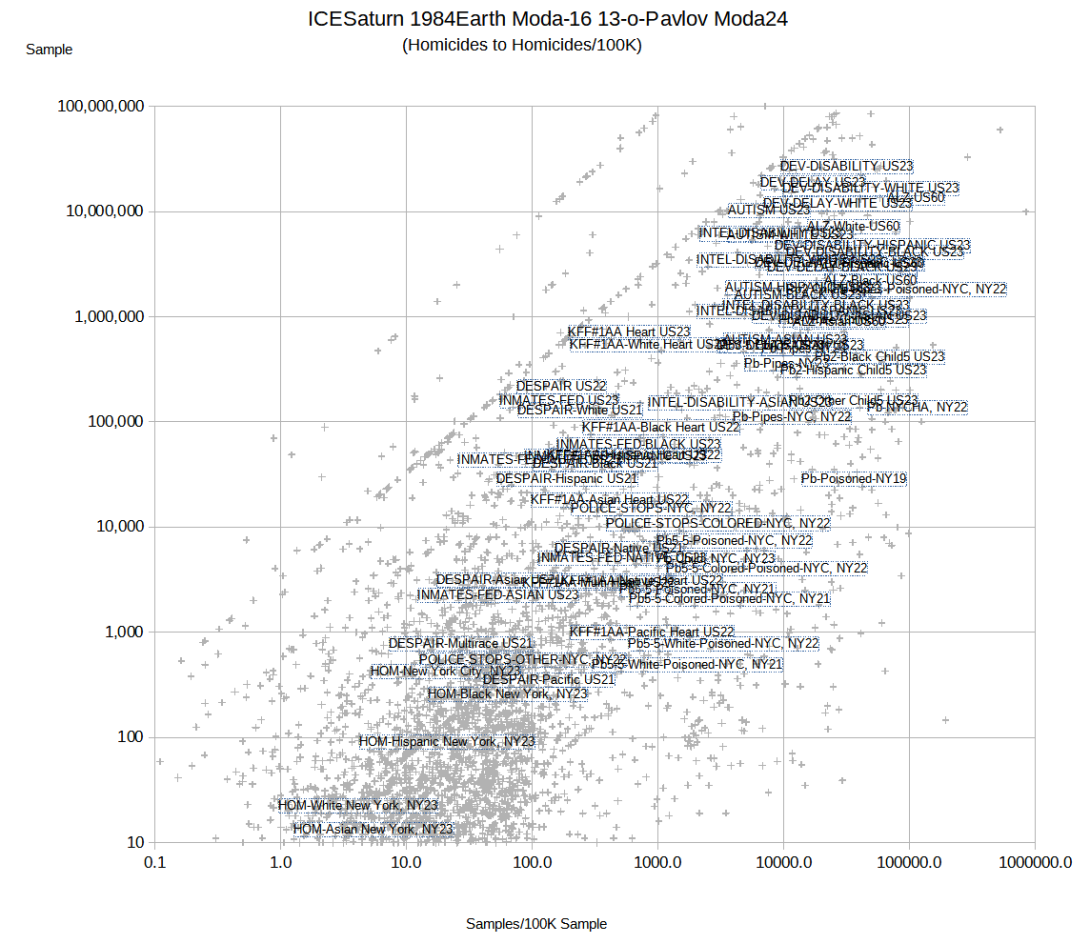
October 30, 2024 “… tenants continue to face harsh conditions during construction …”
NYCCELP is a coalition of advocates, doctors, lawyers committed to ensuring that NYC’s lead laws are adequately implemented and enforced, released a new report: Left In The Dust: The Failure To Protect New York City Tenants From Lead Dust Hazards During Residential Construction. New York City tenants continue to face harsh conditions during construction in their buildings. The report shows that the very protections intended to keep tenants safe from exposure to lead dust are not being followed.
Notable findings from the report show that, despite the implementation of twenty-two new laws in recent years:
- Tenants whose buildings’ common areas or individual units have undergone residential construction report a litany of violations of the safe work practices designed to protect against exposure to lead dust during construction.
- Nearly all surveyed tenants saw visible dust in their buildings. Fears of lead exposure caused significant distress and disruption in their daily lives.
- It is difficult for tenants, especially those who do not have children living in their units, to hold their landlords and city agencies accountable.
The report’s policy recommendations include:
- Introducing new legislation and strengthening and enforcing existing legislation to better protect against exposure to lead dust in residential buildings, regardless of whether children are present.
- Hiring an adequate number of City staff to monitor the effectiveness of tenant protections and interface with tenants during construction.
- Implementing stronger penalties for egregious violations of laws designed to protect against lead dust exposure.
- Improving access to publicly available information, including X-ray Fluorescence test results.
“Most of my 100 year old building underwent extensive demolition and deep renovations over the course of two years. Living in a construction site was stressful for so many reasons but the ever present dust, the respiratory distress, the dry, irritated eyes, the dust carried on my clothing and tracked into my apartment were immediate and concerning,” said Anne Hayes member of Lead Dust Free NYC. “But now I understand that the likelihood of lead in that dust could have long term effects on my health and it’s difficult to even determine when and how that might unfold”
“This applies to tenants – both young and old – and to workers …”
“If a building renovation involving the gutting of units causes the inhalation of lead dust by ANYONE, then that renovation should be deemed unlawful. Period. This applies to tenants – both young and old – and to workers – who should at the very least be wearing protective face masks,” said Don Taylor, a member of Lead Dust Free NYC. “If landlords were subject to living with threats to their health, or damage to their living environment, as we tenants are – you can be sure they would be demanding meaningful protections.”
“New York City has some of the strongest laws and programs designed to address the ongoing crisis of lead exposure- but without adequate enforcement and comprehensive regulations, our communities are quite literally being left in the dust. Since my days as a community organizer and housing advocate on the East Side, I have continually advocated for stronger regulations for testing, enforcement, and remediation when it comes to lead based hazards, and am proud to have sponsored and passed legislation to end and prevent exposure to lead. The City has made great strides over the past half century to reduce exposure to lead, but we must improve interagency coordination, and empower City agencies to intervene faster and more effectively,” said Council Member Carlina Rivera (D-02).
“I stand with the Lead Dust Free NYC tenants coalition and TakeRoot Justice in calling for safer conditions for all tenants,” said Assembly Member Harvey Epstein. “Far too many tenants are subject to the long-term impact of lead exposure and lead poisoning. All tenants deserve to live in a home free from hazards”.
“The work practices that need to be followed to protect tenants are simple and straightforward, so there’s no reason for tenants to be exposed to dust during renovations. For example, wet-mopping floors instead of dry sweeping isn’t more costly or burdensome to landlords. No one should have to flee their homes because of trouble breathing from reckless construction,” said Cooper Square Committee organizer Jodie Leidecker. “The city needs to make sure these rules are enforced so we don’t see decades of people needlessly suffering health consequences.”
“Our research shows that tenants are not protected from lead dust hazards during construction. Tenants witnessed high-risk, prohibited activities, which led to worries about possible lead exposure, and tenants without children reported being unsure of the protections that were available to them—none of these things should be happening”, said Irene Linares, Senior Research and Policy Coordinator at TakeRoot Justice. “We are urging the City to heed the call and improve tenant protections during construction when it comes to lead dust safety,”
“… to eliminate childhood lead poisoning …”
Both Lead Dust Free NYC and the New York City Coalition to End Lead Poisoning (NYCCELP) look forward to working with NYC City leaders in executing the policy agenda steps this year in order to eliminate childhood lead poisoning.
Lead Dust Free NYC is a coalition of tenants who have been exposed to lead dust and are focused on organizing to end lead poisoning in NYC.
The New York City Coalition to End Lead Poisoning (NYCCELP), members include: Citizens’ Committee for Children of New York, Clean and Healthy New York, Cooper Square Committee, Earthjustice, The Frankel Law Firm, Legal Aid Society, Lead-Free Kids New York, Lead Program at Montefiore Medical Center, Natural Resources Defense Council (NRDC), New York Lawyers for the Public Interest, the New York League of Conservation Voters Education Fund, the Northern Manhattan Improvement Corporation, and Harlem’s WE ACT for Environmental Justice.
TakeRoot Justice provides legal, participatory research and policy support to strengthen the work of grassroots and community-based groups in New York City to dismantle racial, economic and social oppression.


Comments